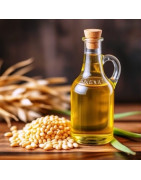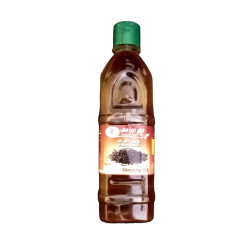Edible Oils
Edible oils are fats derived from plants, nuts, or seeds and play a crucial role in cooking, baking, and food preparation. They provide essential fatty acids and are often used for frying, sautéing, and dressings, contributing flavor and texture to a variety of dishes. Common types of edible oils include olive oil, canola oil, sunflower oil, and coconut oil, each with distinct health benefits and culinary properties.

Subcategories
-
Coconut Oil
Coconut oil is a popular edible oil extracted from the flesh of mature coconuts and is known for its distinct tropical flavor and aroma. Rich in saturated fats, primarily medium-chain triglycerides (MCTs), coconut oil is often praised for its potential health benefits, including improved metabolism and antimicrobial properties. In addition to its culinary uses, it is also commonly used in skincare and hair care products due to its moisturizing and nourishing qualities.
-
Gingelly Oil
Gingelly oil, also known as sesame oil, is derived from sesame seeds and is widely used in cooking, particularly in Asian cuisine, for its rich, nutty flavor. It is valued for its high smoke point and nutritional benefits, including being a source of healthy fats, vitamins, and antioxidants like sesamolins and sesamin. Additionally, gingelly oil is often used in traditional medicine and skincare due to its moisturizing properties and ability to promote overall skin health.
-
Groundnut Oil
Groundnut oil, also known as peanut oil, is a popular cooking oil extracted from groundnuts (peanuts) and is widely used for frying and sautéing due to its high smoke point. It has a mild, nutty flavor that complements a variety of dishes, making it a staple ingredient in many Asian and African cuisines. In addition to its culinary applications, groundnut oil is rich in monounsaturated and polyunsaturated fats, and it contains antioxidants such as vitamin E, contributing to its health benefits.










